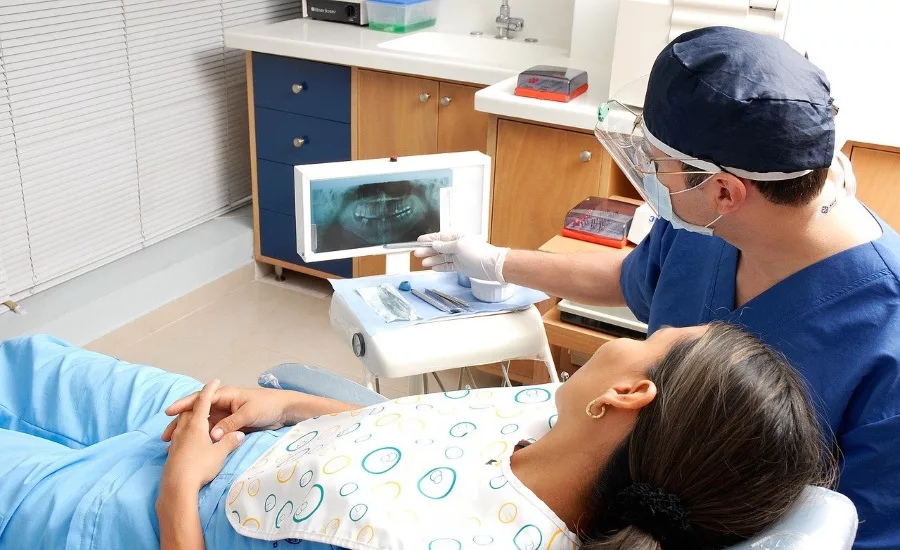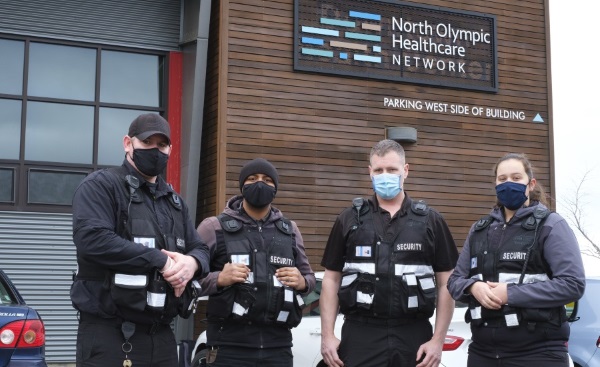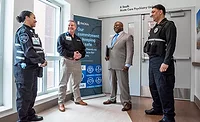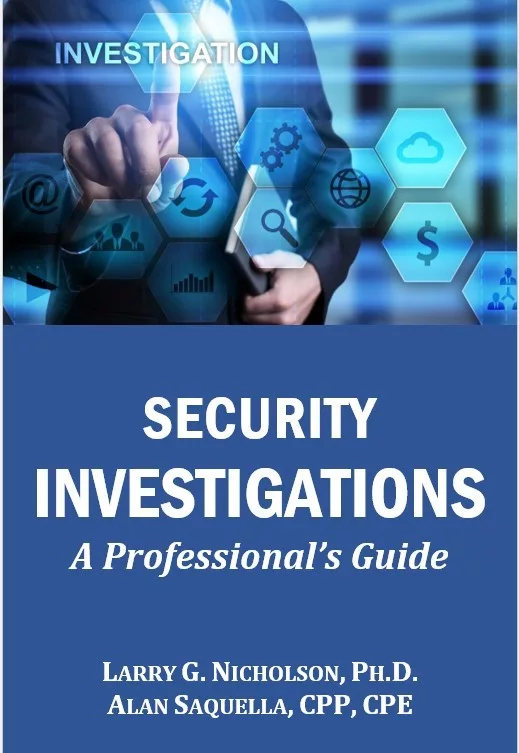Healthcare security: a specialized field

Healthcare security should be considered a specialized field. The generalized idea that security in a healthcare setting represents a front, a presence, or a sort of compliance tactic is archaic. Over the years, the security profession has graduated into an honorable and purpose-driven field, particularly in the healthcare industry. Companies and organizations that have security, whether contract or in-house, should be seen not as progressive, but as the standard.
Staff and patients know that they are coming to a safe place, which constitutes the mission of healthcare security. Structure, the backing of a legal department, a facility director’s management, its mission statement, policies and procedures, routine security activities, communication tools, observation tools, budgets, and allotted training time are all imperative to a solid, trustworthy and honest security team.
Changing the culture
On the rare days that no security events happen, instead of being relieved, the healthcare security officer is usually thinking about previous incidents and issues that have occurred, and self-analyzing how they could have handled the situation better. Every security officer who has worked any length of time in healthcare security can explain what adrenaline feels like, as well as anxiety about their response.
Security responses to escalating issues or threats are the difference between a great day and a really bad day. If you respond the wrong way, you can have a lot of patients, staff or bystanders watching your response. Community healthcare deals with people from all walks of life, including those with multiple psychiatric disorders, drug addiction, suicide ideations, depression, dismal diagnoses and other issues that can cause individuals to be stressed, emotionally charged with unpredictable reactions, which creates safety concerns.
When security responds with confidence, professionalism and knowledge, the security team builds trust. Staff will see security handling their patients with care and understanding, while redirecting them, which paves the way for future safety, because staff will learn to call security instead of relying on themselves. Behavioral healthcare staff, dentists and doctors can all focus on their patients while security observes, understands, responds or redirects.
Changing an organization’s culture and mindset when it comes to security should include building a training program with solid policies and procedures that allow for growth within the security department so that an officer can see an opportunity for growth in their profession, and, as a person. No one wakes up and says, "I want to be a Healthcare Security Officer."
Building open communication between security officers ensures success for everyone, and allows security staff to feel appreciated and needed. Leadership should be open to things officers say and allow them to share their opinions; this can help build up confidence and trust. Explaining why an idea will work or not work rather than shutting down a security team member’s idea can help build respect and foster increased knowledge among your security team.
The goal of every healthcare security director should be building career-minded officers that will maintain and carry themselves in a professional manner and care about what they say and do. With this culture, improvement is appreciated and noticed and opportunities will follow for the officers to grow.

North Olympic Health Care Network’s Security Team includes (from left) Ted, Marcus, John and Madison.
(Photo courtesy of Jeff Anderson)
Utilizing existing programs and starting new ones
Understanding what the healthcare facility has to offer based on its programs, program goals and structural style gives security officers additional means and resources for helping redirect patients and potential patients — because often a security officer’s interaction with a patient may include helping them find additional resources they may need. Some of these programs include: medicated assisted treatment, behavioral health, drug treatment services, family medicine, dental, groups classes and telehealth.
Meeting with staff from various departments to find out what is important to them as far as security and safety concerns is another way security directions and security leaders can gain valuable insight to approach their security team. Building rapport with all departments and staff is crucial to success in the healthcare setting.
If staff hesitates or is unsure to notify security, it could be dangerous. Be the officer they will call. A few ways to build rapport among staff, include talking to staff and getting to know their names, saying hello, waving and being friendly; all of these gestures contribute to trust and help staff know that their security team is the best in the business.
Staff trust includes knowing the security officer will respond in a professional manner and treat people with respect. It’s important to be aware that other departments, staff and individuals will look at things differently and what you consider an emergency may not be what another person considers emergency. The healthcare security officer should always remain the calmest person in the room.
Security-related training
Staying the most calm, cool, and collected person in the room under any circumstance makes the difference in safety. Security directors should build a strong training platform and that encourage staff to maintain a calm persona while responding appropriately to any given situation, and promoting safety within the healthcare setting.
The ideal education and training for a successful security department within the healthcare setting should include: de-escalation and crisis intervention training, mental health, CPR and First Aid, National Anger Management Association education, quarterly defensive tactics, nasal Narcan, and IAHSS Basic Certification. Because of a security officer’s varied role between hours, minutes and days, all of the above trainings can come in handy within the healthcare setting.
For security professionals within healthcare, training is imperative for daily dealings with intoxication, mental health, suicidal ideation and other crises. The response should include a soft approach with commitment to what you say and backing it up. When the person is intoxicated or having a mental health issue or is severely depressed, it turns into dual responsibility 50% officer 50% patient. The officer will make clear the behavior or actions that violated rules or someone's space and explain the options to the offending patient. The patient half involves understanding and knowing what the expectations and compliance with the policy/rule that have been explained in detail.
Also imperative to success for security teams within the healthcare sector is building a 90-day field officer training program. Security directors should allow new officers to shadow and follow a FTO officer for the first full week, to ensures the new officer understands policies and daily activities.
During the 90 days, new security members should also complete computer modules, the training courses mentioned above, and weekly check-ins with their assigned full-time officer. A monthly check-in with the security supervisors, FTO, and director is important to find out how the officer is doing, and how the training is going.
Implementing a 90-day field training program with a pass or fail outcome creates an environment which the facility, staff and superiors take seriously, and creates an officer that is confident, reliable and willing to show up.
Focus on mental health
While a security role within healthcare can be very rewarding, the role can also be demanding and exhausting. It’s important for security leaders within healthcare to conduct mental health checks on security staff regularly. This helps ensure security staff are holding up well and their needs are being met. When safety and security break down, so does the staff.
If a radio is not on, something is out of place, the right person cannot be reached, or a response flow chart isn’t followed, disaster can happen. One person's reaction to an “off” day can trigger other staff, so security must always remain in control.
Within healthcare setting, the safety and security landscape continue to change. As an industry, we are responding to and seeing upticks in behavioral health, suicidal ideations, violent outbursts, drug overdoses, anxieties and depression. People are trying to make their way through what is being dubbed “the new normal,” amid the COVID-19 pandemic, but the possibilities of issues arising increase from different reactions to life.
Because of all these changes, the safety and security team need xto be a safety net of sorts to both patients and staff through security response, knowledge of services, outreach, and being the best listeners.
Hopefully, the future will gift security with increased budgets so that training and tools needed to be the best they can be become more widespread and available. From my team to yours, stay focused, stay aware, be everywhere, and stay safe!
Looking for a reprint of this article?
From high-res PDFs to custom plaques, order your copy today!






